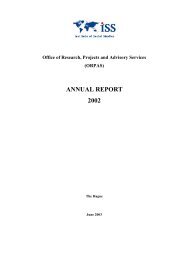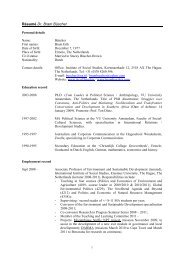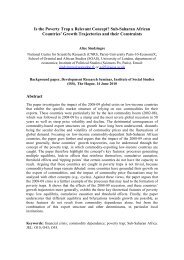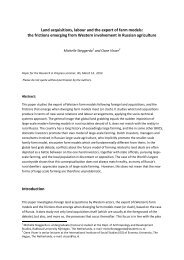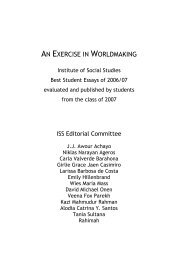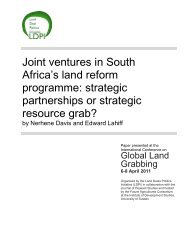AN EXERCISE IN WORLDMAKING 2009 - ISS
AN EXERCISE IN WORLDMAKING 2009 - ISS
AN EXERCISE IN WORLDMAKING 2009 - ISS
Create successful ePaper yourself
Turn your PDF publications into a flip-book with our unique Google optimized e-Paper software.
40 EVA SABATE<br />
tion of Multinational Enterprise (MNE) labour standards performance.<br />
Last, some relevant conclusions will be highlighted.<br />
Codes of conduct are one of the key instruments of CSR. Defined by<br />
the ILO as ‘companies’ policy statements that define ethical standards for their conduct’,<br />
they have been strongly criticized in the related literature. Nevertheless,<br />
their voluntary feature and the limited enforcement mechanisms to<br />
ensure that the included statements are translated into practice are the<br />
most important shortcomings that will be stressed in this essay. In an<br />
attempt to overcome some of those limitations, International Framework<br />
Agreements have appeared as a relatively new phenomenon in the<br />
CSR scene. In the recent years, Global Union Federations (GUFs) have<br />
been embarked in its negotiation with the aim to achieve international<br />
labour relations in an increasingly globalized context (Sobczak, 2006).<br />
Even the fact that they are not legally binding, IFAs are regarded in<br />
many senses as an improvement for the enforcement of workers’ rights.<br />
Given that they are negotiated and signed between social partners, IFAs<br />
have a higher legitimacy than company codes, which are mainly a unilateral<br />
declaration of management principles. IFAs also formalize the participation<br />
of GUFs in the implementation of the agreement, which is of<br />
special importance due to the lack of global regulation. Moreover, they<br />
promote the recognition of local unions as social bargaining partners at<br />
the local level, and strengthening their workers’ protection capacity. Instead<br />
of being implemented and monitored by management or external<br />
social auditors, the implementation of IFAs are undertaken together with<br />
trade union organisations and are mainly dialogue-based, allowing a<br />
greater representation of workers’ voices and independent monitoring.<br />
However, IFAs present also important shortcomings in terms of enforcement<br />
since they still depend on soft mechanisms such as conflict<br />
resolution and joint problem solving (Schoemann et al., 2008). Moreover,<br />
companies which have been engaged in IFA negotiations are predominantly<br />
those that already have good industrial relations at the workplace,<br />
take responsibility for their supply chain and are open minded<br />
about trade union activities (Hellman 2007).<br />
As the Inditex case will be used to bring practical examples of the differences<br />
among both instruments, the following is an overview introduction<br />
to the company’s key features. Industrias de Diseño Textil S.A. (Textile<br />
Design Industries, Inc.) was founded in La Corunya, Spain in 1975. The<br />
company is one of the world's largest fashion groups and the first Euro-




